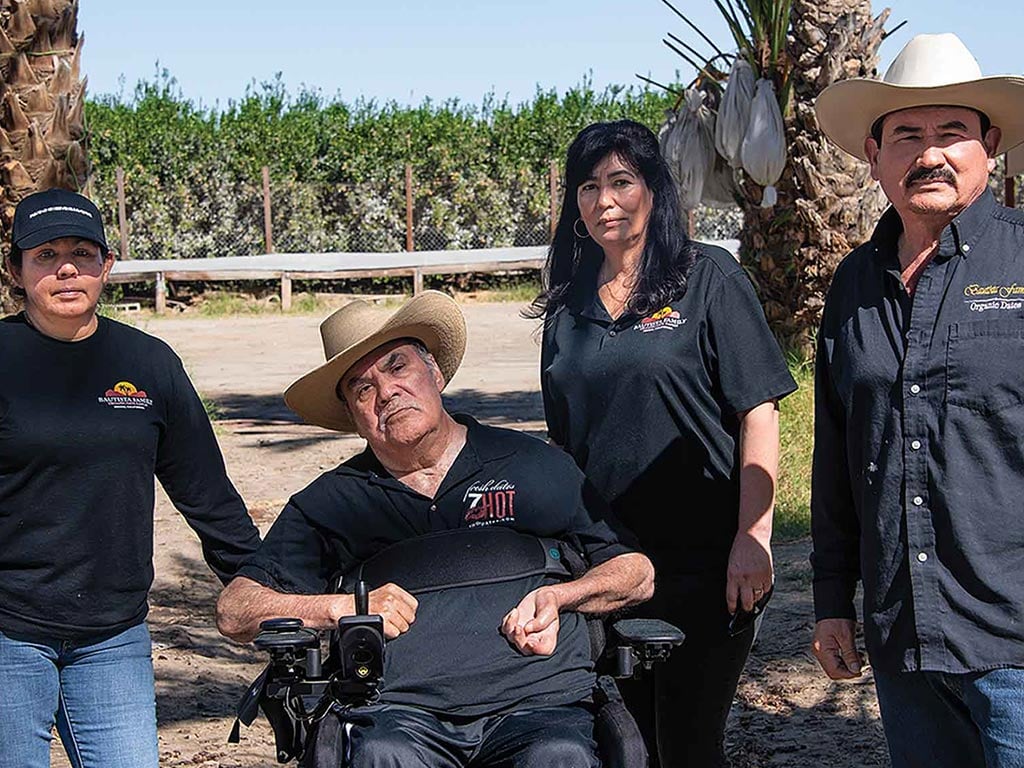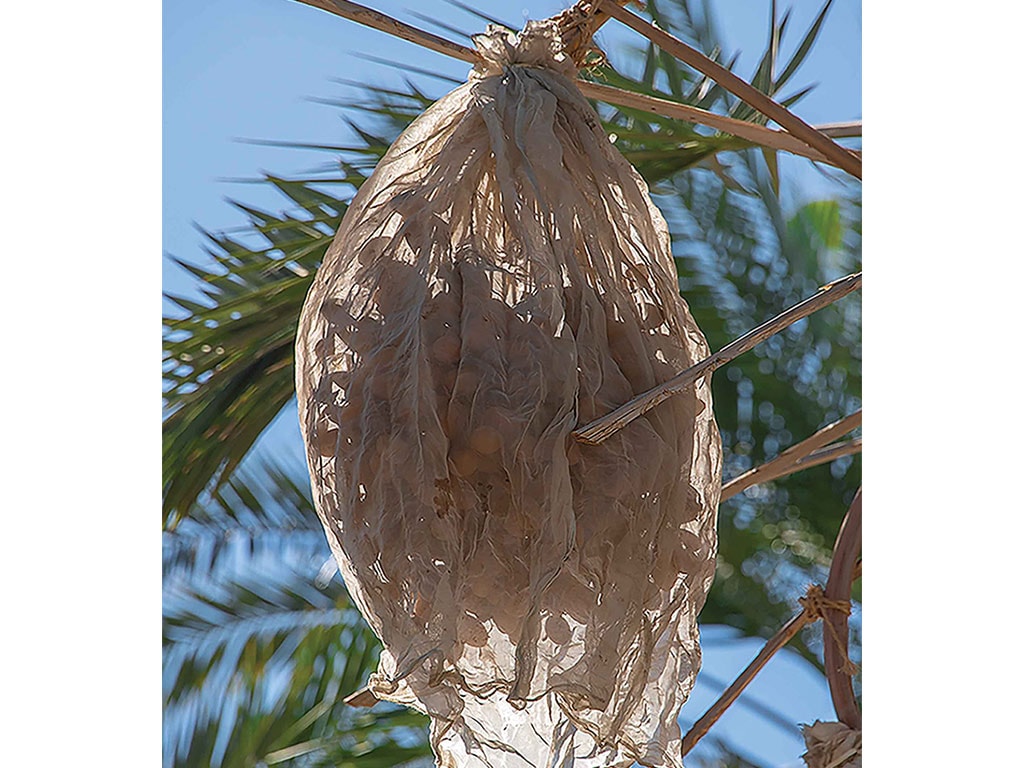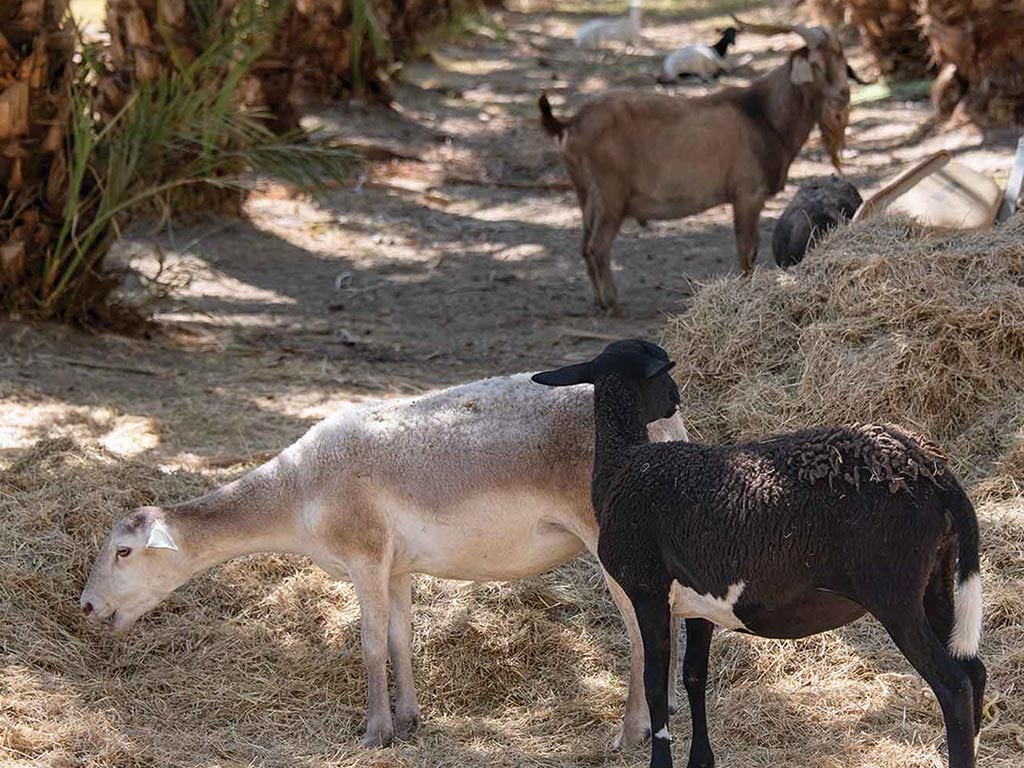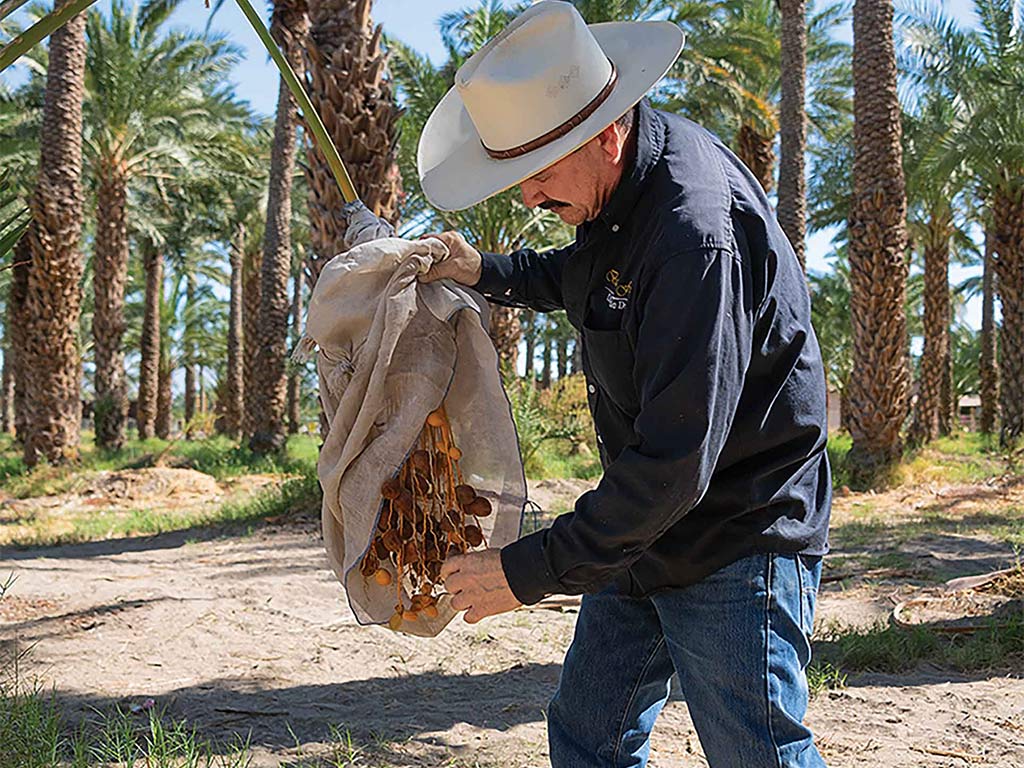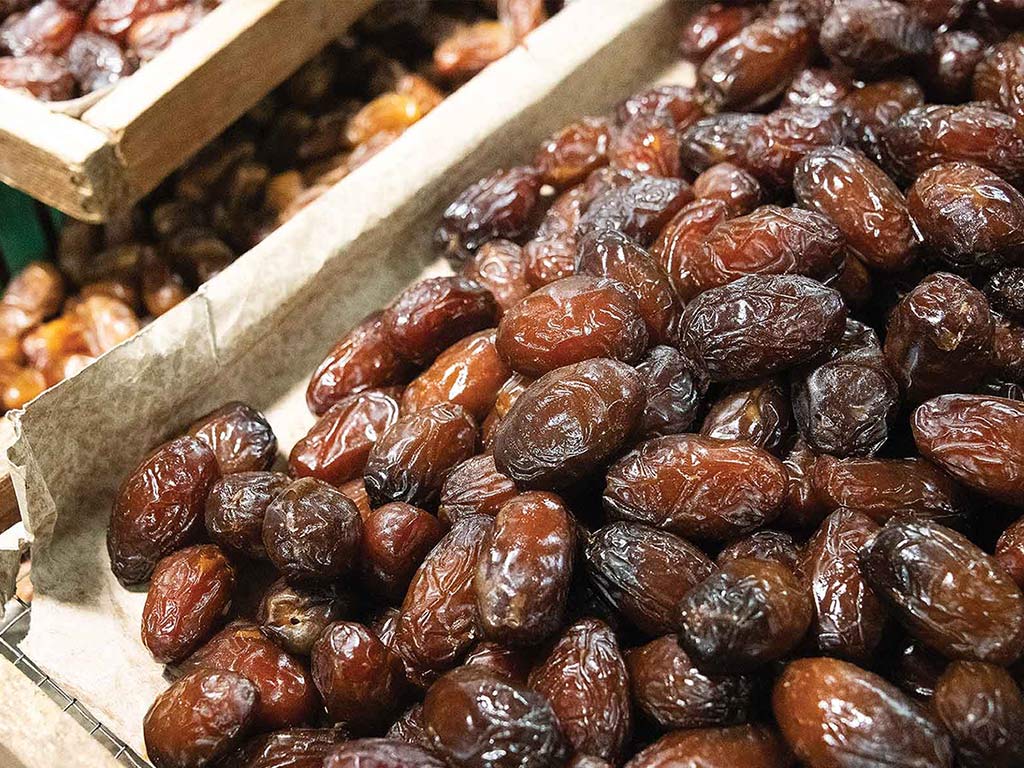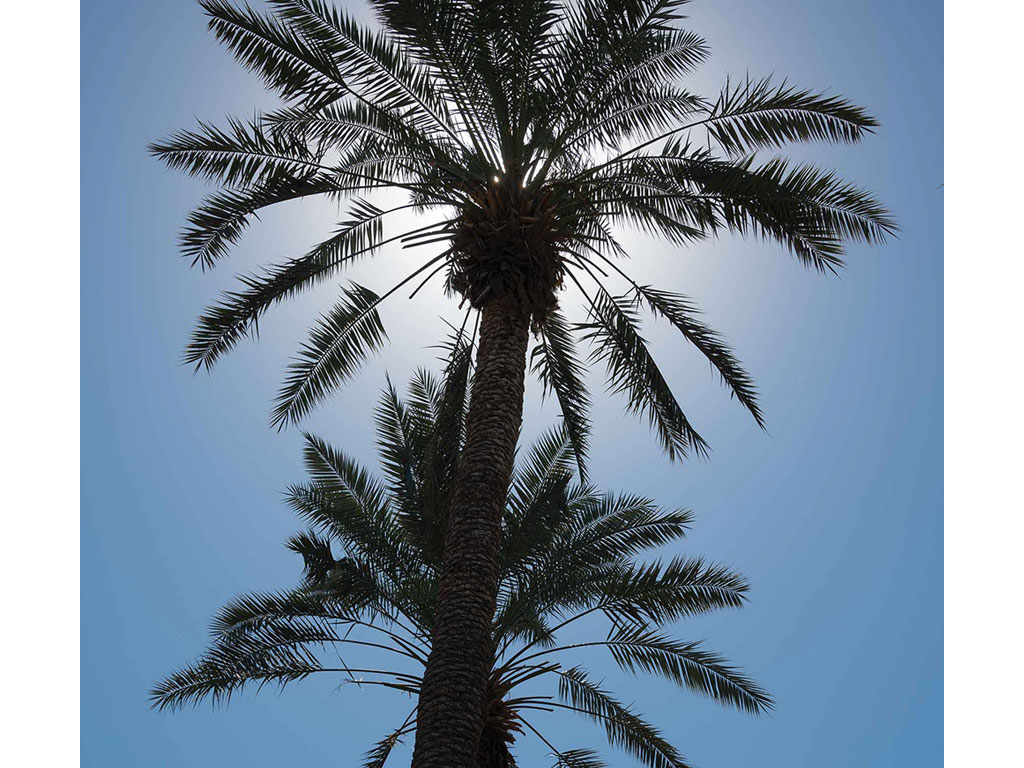Agriculture, Farm Operation June 01, 2025
The Perfect Date
A love story.
by Steve Werblow
This is a love story.
It's about the love of family. About a love of farming so deep it couldn't be quashed by a devastating accident. About the love for the people who helped the Bautista family through hard times. It's about a farm family that just won't quit.
Enrique and Graciela Bautista worked in a 14-acre date orchard near Mecca, California—Enrique as orchard manager, Graciela on harvest and packing—for a decade before Betty Lou and Fred Wendler sold them the farm in 1999. Because the Bautistas could not get a bank loan, the Wendlers carried the note to allow the couple to buy the operation.
The Bautistas improved the irrigation system and packing facilities, but they carried on the Wendlers' organic practices. They kept growing the 7 varieties of dates the Wendlers planted. In an industry that's only known for 1 or 2 varieties, it helped them stand out at the farmers' markets in the local Coachella Valley communities and a few hours' drive away in the Los Angeles area.
In 2004, driving home from a farmers' market, a car crash nearly killed Enrique and confined him to a wheelchair.
His children and grandchildren immediately started grading all the paths around the orchard and the sandy middles between the palms.
They knew it was a matter of life and death. Padre needed to check the fruit, the irrigation, and the goats and cows that graze the orchard's cover crops.
Enrique still gets choked up talking about how much farming means to him.
"I'm not supposed to be here talking to you. If I don't continue doing the same thing..." he says, emotion cutting him off.
His daughter Marisela gently touches his shoulder and adds, "This is your life."
Her sister Alicia jumps in.
"It's motivation for him," Alicia says. "It keeps him alive. He is out every morning. He's always thankful that he had the farm and was not living in the city. If not, he would have already been gone."
Above. Marisela, Enrique, Alicia, and Alvaro in the orchard, which the Bautistas graded to permit Enrique to check the crop in his wheelchair. Mesh bags protect dates from birds and insects. In the spring, flowers are enclosed in paper bags and pollen blown in with a squeeze bottle. Goats graze cover crops in the orchard; so do cattle. Alvaro checks the crop. The Bautistas started selling luscious "wet pack" dates to generate early cash flow, and they quickly became a favorite of many customers. Towering date palms can send roots 10 to 20 feet into the soil. Fruit must be harvested by crews on lifts.
Family. A conversation with the Bautista family jumps around the table like that. Their business works similarly, with all the siblings contributing. First-born Alicia runs the office. Marisela is in charge of packing. Enrique Jr. is the farm mechanic. Jaimie works in town but staffs farmers' markets when needed. A crowd of grandchildren, relatives, and in-laws pitches in with pollination, harvest, sorting, packing, and sales.
Alvaro, the eldest son, runs the farmers' markets and handles many of the day-to-day responsibilities in the orchard—but he leaves no doubt that Enrique is still the boss.
"He's up-to-date before everything happens," Alvaro says with a chuckle. ("Giving orders," laughs Alicia.) "He's considered every option," Alvaro continues. "Every decision we try to take, he knows it."
Resilient. Walking through the orchard, visitors can spot alternating rows of towering palms 60 feet tall beside trees that are half that height.
"We had to sell every other row to pay medical bills," Alvaro explains. "We were at the limit, but we have a lot of family, thank God. They all pitched in to help us out here, too."
Necessity also prompted the Bautistas to sell young, moist dates the family calls "wet pack" as well as traditionally sun-dried dates they call "firm pack." Wet pack turned out to be a huge crowd-pleaser, but it was born of the need to harvest early to kick-start cash flow.
Customers also love learning that there's more to dates than the familiar, huge Medjools and long-lasting Deglet Noors.
There's the chewy Halawi, with its caramel overtones; the moist Khadrawy; and the drier Zahidi. Alvaro says Middle Eastern customers love Barhis, which can be picked crunchy and tannic like a crabapple or gooey—he calls it "liquid gold."
"Our customers like to experience new things," adds Alicia. "The first we sell out of are Barhi and Medjool. So I'm like, 'have you tried the other ones?' We tend to give them samples and they go, 'oh, I like this one, too.' So once Medjool is gone, they go to the next one."
Online orders augment the farmers' market sales. Orders from around the country pour into their 7 Hot Dates website (bautistaorganicdates.com), where customers can buy boxes of specific varieties or try the Bautistas' Royal Treatment variety packs. The family considered wholesaling a few years ago, but decided they didn't want to give up the personal contact of farmers' markets.
"After 25 years, I still love it," confesses Alicia. So does Alvaro.
"People come in and they try our dates and say, 'wow, I didn't know it could be like this,'" Alvaro says. "It's very, very satisfying to see their expression, the love for that fruit. That's one of the more beautiful things about being a farmer." ‡
Read More

AGRICULTURE, EDUCATION
Summer School in the Barnyard
Vermont dairy transforms chores into summer camp traditions and community bond.

AGRICULTURE, FARM OPERATION
Hands-on Farming
The Karr family is digging into regenerative practices.


